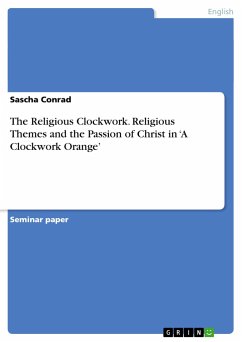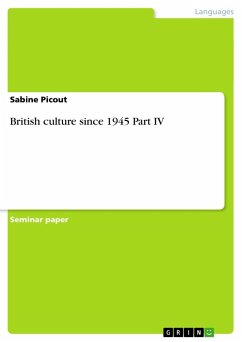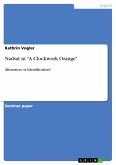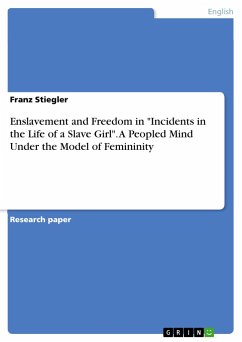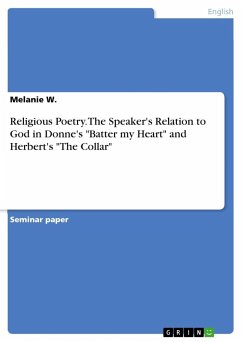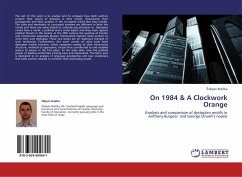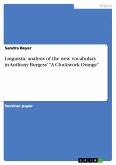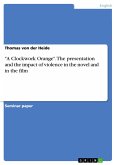Seminar paper from the year 2004 in the subject American Studies - Literature, grade: 1,0 (A), Martin Luther University (Anglistik und Amerikanistik), course: A Clockwork Orange, language: English, abstract: This paper is an attempt at analysing the religious aspects of A Clockwork Orange in order to gain an understanding of Burgess' message of freedom. It will be argued that his novel is a religious warning and an insistent call to the individual reader and the Christian Church: Freedom is permanently threatened and freedom can only be obtained when the freedom of moral choice is guaranteed. In this paper, the examination of religious themes and a comparative analysis serve as tools to outline the religious aspects of A Clockwork Orange. In the novel, the philosophical and religious problems that are inherent in Alex's spiritual fall and rise clearly demonstrate that the Christian faith and the Bible inspired Burgess' work. These problems can be categorised into four major themes: Freedom and bondage, violence and suffering, the relationship between man and God, and innocence and guilt. The implication of these themes in A Clockwork Orange will be discussed in the first part of this paper. However, the reference to religion and Christianity in A Clockwork Orange is not confined to these general themes. On another and more specific level, the story of Alex can be viewed as an analogy to the life of Jesus Christ as it is narrated in the Bible. This is why the second part of this paper, a comparative analysis of these two 'narratives', will be provided. The three major connections that will be discussed are the structure of the Alex's concept of thinking in comparison with the teachings of Christ, the common experience of betrayal and interrogation, and the application of Alex's story to the Passion of the Christ. They will be supplemented by a fourth argument that is not strictly related to the biblical narrative but to Christian history after the death of Jesus: The parallels between Alex's restoration and that of the Christian community in the fourth century. For this purpose, biblical and Christian terms like 'disciples' and 'glad tidings' will be used occasionally in reference to Alex. This terminological transfer does not imply that Alex's persuasions are identical with those of Christ. As a matter of fact, the deeds and intentions of the two figures are rather contrary in terms of their moral impetus. Therefore, it is not the moral differences but the structural similarities which will be analysed.
Hinweis: Dieser Artikel kann nur an eine deutsche Lieferadresse ausgeliefert werden.
Hinweis: Dieser Artikel kann nur an eine deutsche Lieferadresse ausgeliefert werden.

